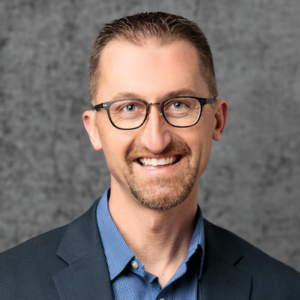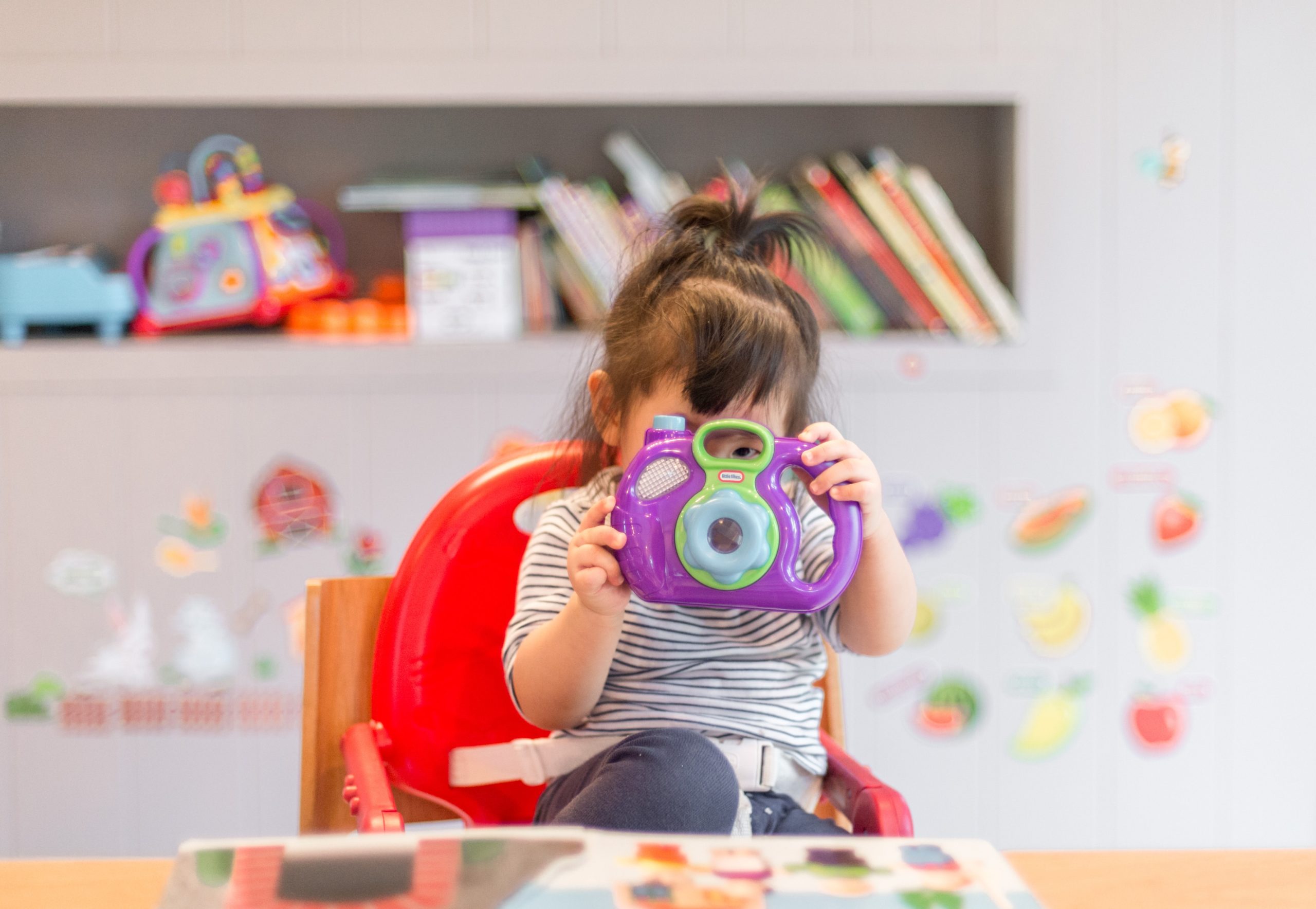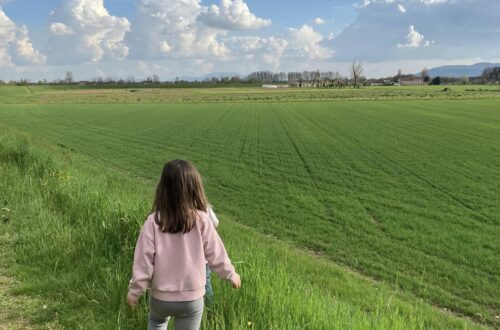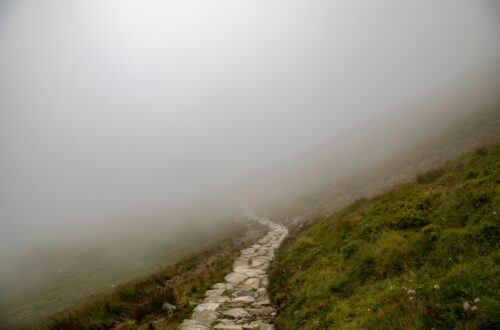As part of the Porn and Parenting Series, I reached out to my friend, Chris, at Protect Young Eyes. PYE shows “families, schools, and churches how to create safer digital spaces. Through a pretty great website, super fly presentations, and a unique learning app for parents who have ZERO free time.” Chris’s approach to porn as a parent is refreshing and unique. He believes that your kids don’t need controlled, they need coached, and it’s an approach that I believe is hugely effective.
This content originally appeared at Protect Young Eyes and has been republished by Beggar’s Daughter with permission.
Parents, this blog post will require around 7 minutes of your time – 7 precious minutes that will give you understanding that you’ve never had about your children. Key take-aways: if your child looks at porn, it’s probably not their fault. And if they admit it, give them a high-five.
“Mom, I just couldn’t stop clicking.”
I remember when a mom contacted me because her 11-year-old son had been looking at porn. She didn’t know what to do. Just the week before, Julie [name changed] was having a conversation in the kitchen with her then 18-year-old son about how he was doing. The topic of pornography came up and they were discussing how it had impacted him. He had struggled with it but he now had some digital protections in place to help and it was getting better.
What Julie didn’t know is that her 11-year-old son was listening to the conversation from the hallway. He heard the conversation and the word “pornography,” a word he didn’t understand because they hadn’t talked about it. Jason [name changed] did what any curious young person might do and he went to the family computer and Googled the word “pornography.” This happened on a Friday night.
Unfortunately, this search coincided with a small window when there were no filters set up on the computer because mom was switching to a new filtering software.
Fast forward to Sunday. Jason was using the computer in the home’s small office, when his teenage sister walked in on him and caught a glimpse of the screen before he minimized it. His sister immediately went to mom who was crushed by the prospect of her sweet, little boy looking at porn. Dad had left for a business trip and wasn’t going to be home until Tuesday night.
Mom told Jason that they would talk about it on Monday and when that happened after school, Jason said something that mom didn’t quite understand.
“Mom, I just couldn’t stop clicking. It was like I wasn’t in control anymore.”
When Julie heard this, she began to question a lot of things about her parenting. How could he just keep clicking? He knew it was wrong! This is a Christian home! He knows better.
Go, go, go! Young brains + porn = full-steam ahead!
Adults rely heavily on the prefrontal cortex all day long. It literally sits toward the front of the brain, and it’s the region that’s in charge of:
- Focusing attention
- Anticipating and predicting the consequences for one’s actions
- Impulse control; managing one’s emotions
- Planning for the future
- Conditional thinking (“I can’t do A until B happens)
The brain develops in a back to front fashion. In other words, the prefrontal cortex is one of the last parts of the brain to develop. In some, this development will continue well into their 20’s. This doesn’t mean that adolescents don’t have a functioning prefrontal cortex. It just means that they don’t have the executive functioning of an adult. This part of the brain that is so critical for good, rational decision-making not only isn’t fully functioning as an 11-year-old, but it’s also not yet connected to the other parts of the brain that assist in decision making. The synaptic explosion and pruning that occurs during adolescence hasn’t finished its job of plugging the brain’s main areas into each other.
Here’s an excerpt from Good Therapy’s website:
“For example, most fifteen-year-olds can assess hypothetical risk as well as adults. However, a teen’s prefrontal cortex has not grown many connections with the limbic system yet. In other words, the part of the brain that provides self-control can’t communicate well with the part of the brain that controls the fight or flight response. Thus, the same fifteen-year-old may act rashly under stress, even if they technically “know better.”
In other words, when a young person says, “I’m not sure why I did it,” they might be telling you at least a partial truth. For Jason, his statement, “mom I just couldn’t stop clicking” definitely makes a lot more sense.
Sexual cues fire up the brain through a complex cocktail of neurochemicals like dopamine, norepinephrine, and serotonin. Combine these powerful neurological forces with an underdeveloped prefrontal cortex and a young developing brain just doesn’t stand a chance.
So, what 3 things can parents do in response to these digital realities?
How to Prevent Porn Exposure in Kids
Get the right router.
Your poor router is the social distance champion in your home! Always working and never loved or hugged. But your router is the most important digital device in your home! We’ve tested routers and the only one we recommend is Gryphon.
Normalize porn.
Wait, before you fire off a nasty email, let me explain! Talk about pornography early. Talk about pornography often. Make sure your kids have permission to always talk to you about digital “stuff.” And that includes giving your kids permission to talk openly about pornography. That starts with you talking openly about pornography, what it is, what you feel about it, and what they need to do if they see it or someone offers to show it to them.
I share some great stories about early porn talks in this post, How to Talk to a 5-year-old about Pornography. You’ll also find great books in that post that you might use to help you say the right things!
Quit giving kids smartphones.
Smartphones are little porn boxes. Supercomputers with access to the world. And, everything else. Have you heard of Gabb phones? Try one of those instead. We just don’t think that kids who aren’t in high school need portable internet. (PYE are affiliates – we believe in their mission!). Use promo code PYE for $10 off a phone!
How to Respond When a Child Admits to Seeing Pornography
Don’t freak out. Don’t freak out. Don’t freak out.
Imagine for a minute that your son or daughter was looking at pornography or someone showed them pornography and they feel badly about it. They decide that they’re going to tell mom what happened so that they can just get it out.
What good does being disappointed do in that moment? YOUR KID JUST HAD THE COURAGE TO TELL YOU THAT THEY WERE LOOKING AT PORN!
You better give high fives, take them out for their favorite dessert, and celebrate like they just got all A’s on their report card!
Seriously! Don’t freak out. Your posture, facial expressions, everything matters. Open. Receptive. If you’re disappointed, don’t show it or they’ll never, ever come back to you the second time they’re in a pornography situation (and there’s a good chance it could happen a second time).Other aspects to the conversation:
- Just one parent. You know the relationship dynamics best but for the first talk, just don’t gang up.
- Remind your son/daughter that you still love him/her no matter what they do.
- Calmly present the digital evidence that you found.
- Share reasons why pornography is bad for people. Fight the New Drug does an amazing job of explaining why porn is bad for the brain, the heart, and the world.
- Punish as you see fit. Loving consequences are fine and necessary.
Implement the right parental control solution.
There are many. Too many to list here. We’ve done all of the testing in our very popular post about all of the software. The point is to stop the inflow of explicit content.
Read more about our detailed parental controls testing (We demystify the myriad of available solutions. It will take another 10 minutes if you have it).
Get help if needed. You might not have all of the answers.
Don’t let parental pride get in the way of doing the right thing. Here are some signs that your kid might need a counselor:
- Your child’s behavior is excessive.
- Your child can’t seem to stop viewing pornography, even after intervention.
- Your child’s pornography preferences are hardcore, bizarre, and/or illegal.
- Your child is engaging in sexual activities with strangers met online.
- Your child says they want to see a counselor.
(Please note: this list is not to be considered a medical diagnosis from Protect Young Eyes – parents are the final authority)
Understand the Brain = Understand your Kid
When parents better understand what’s happening inside of the brain of their child, then they will better understand why good, amazing kids sometimes are so easily snagged by awful digital content.
“Mom, I just couldn’t stop clicking” starts to make a lot of sense.
And, in a digital world where 27% of unfiltered online video content is explicit and 56% of eighth graders say that it’s easy to “bump into” inappropriate content while doing homework (according to our own survey of 156 students at a school we spoke at), we must be more empathetic. Yes, it’s difficult being a parent in the digital age, but imagine how difficult it is being a child, where explicit content is literally lurking around every digital corner and your brain just can’t handle it. May we all have more empathy and more urgency related to childhood porn consumption.
Next Step: Check the PYE Protect App for bite-sized education – 500 mini lessons and videos to watch with kids! You can find it in Apple or Google Play.
 Chris McKenna, A man with never ending energy when it comes to fighting for the safety and protection of children. Chris practices his internet safety tips on his four amazing children and is regularly featured on news, radio, and podcasts for his research. His 2019 US Senate Judiciary Committee testimony was the catalyst for draft legislation and on-going discussion that could radically change online child protection laws and earned PYE the NCOSE Dignity Defense Alert Award in 2020. The PYE team has performed over 1,200 presentations at schools, churches, and nonprofits and was featured in the Childhood 2.0 movie. When not leading PYE, Chris is the Digital Marketing Manager for Covenant Eyes. Other loves include running, spreadsheets, nature, and candy.
Chris McKenna, A man with never ending energy when it comes to fighting for the safety and protection of children. Chris practices his internet safety tips on his four amazing children and is regularly featured on news, radio, and podcasts for his research. His 2019 US Senate Judiciary Committee testimony was the catalyst for draft legislation and on-going discussion that could radically change online child protection laws and earned PYE the NCOSE Dignity Defense Alert Award in 2020. The PYE team has performed over 1,200 presentations at schools, churches, and nonprofits and was featured in the Childhood 2.0 movie. When not leading PYE, Chris is the Digital Marketing Manager for Covenant Eyes. Other loves include running, spreadsheets, nature, and candy.
Instagram: instagram.com/protectyoungeyes
Facebook: facebook.com/protectyoungeyes
Website: protectyoungeyes.com
Chris has given a lot of great content. I want to follow that up by offering 6 months of the PROTECT app (Premium) for free. Details are below and please share with parents you may know!






